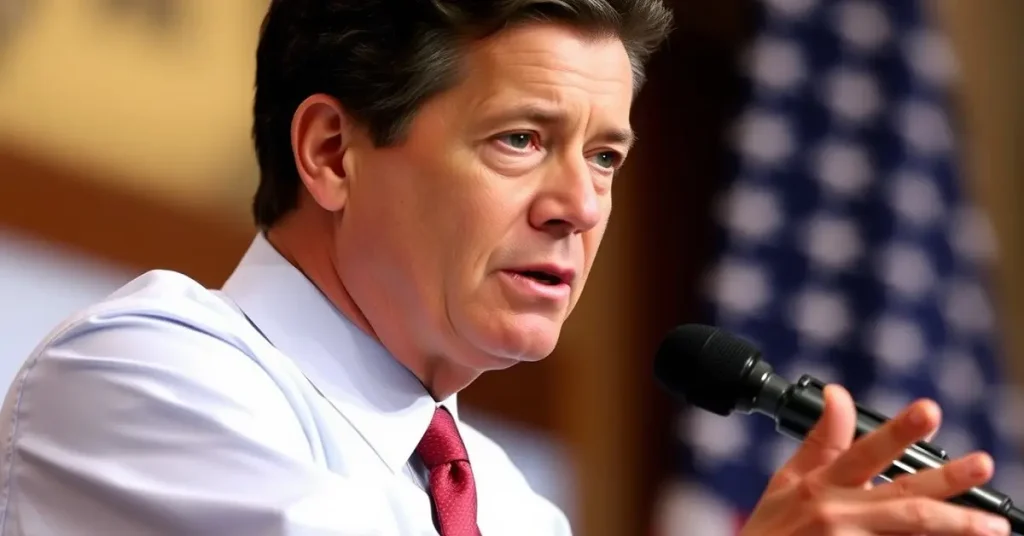Health and Human Services Secretary Robert F. Kennedy Jr. has unleashed a wave of outrage following controversial statements about autism during a press conference on April 16, 2025.
Kennedy, citing a new Centers for Disease Control and Prevention (CDC) report showing autism rates rising to 1 in 31 among 8-year-olds, described the condition as a “preventable” epidemic driven by environmental toxins.
His remarks, however, went further, painting a bleak picture of autistic individuals’ lives, claiming they “will never pay taxes, hold a job, go on a date, write a poem, or play baseball,” and that many “will never use a toilet unassisted.” These statements have drawn sharp criticism from autism advocates, researchers, and individuals on the spectrum, who call the comments misleading, stigmatizing, and ableist.
RFK Jr.’s Autism Claims Ignite Firestorm
Kennedy’s press conference, held at the Department of Health and Human Services, was meant to address the CDC’s latest data on autism prevalence, which reflects a nearly fivefold increase since 2000.
He dismissed the widely accepted explanation that broader diagnostic criteria and improved screening contribute significantly to the rise, instead blaming unspecified environmental factors and vowing to identify their causes by September 2025. “This epidemic denial has become a feature in mainstream media,” Kennedy said, rejecting genetic research as “a dead end” and promising “exhaustive studies” to pinpoint environmental triggers.
The autism community and experts have pushed back forcefully. Zoe Gross, director of advocacy for the Autistic Self Advocacy Network, called Kennedy’s remarks a “return to a negative, ableist view” that undermines decades of progress in autism acceptance. Autistic individuals flooded social media with counterexamples, highlighting their achievements in careers, relationships, and creative pursuits.
Will Palmucci, a 21-year-old autistic man recently accepted into Wesleyan University to study film, told CBS Boston, “I like to perform, and I like talking to people,” emphasizing that Kennedy’s claims do not reflect his reality. Similarly, an autistic poet challenged Kennedy’s assertion that autistic people cannot write poetry, declaring, “I will challenge RFK Jr. to write a poem as good as me any day of the week.”
Read More: Paperboy vs. PhD: The Explosive Carney-Poilievre Showdown Igniting Canada’s Election Fever!
Parents and advocates also expressed dismay. Alexis and Richard Brown, parents of 15-year-old autistic twins, told ABC News they were “disheartened” by Kennedy’s rhetoric, with Alexis stating, “RFK had a lot of nerve stating that autism is ruining our lives.” The Autism Society of America and other groups issued a joint statement denouncing Kennedy’s approach, warning that it fuels harmful narratives, including anti-vaccine sentiment, and diverts attention from meaningful research and support.
Experts question the feasibility of Kennedy’s ambitious timeline to uncover autism’s causes by September. Dr. Catherine Lord, an autism researcher at UCLA, told ABC News that while environmental factors may play a role, the expanded definition of autism spectrum disorder since 2013 accounts for much of the increase in diagnoses.
A comprehensive study, she and others argue, would require years, not months, and significant funding. Critics also raised concerns about Kennedy’s appointment of David Geier, who previously treated autistic children with a puberty-blocking drug, to lead a federal autism study, calling it a red flag given Geier’s controversial history.
Kennedy’s comments have also drawn scrutiny for contradicting the legacy of his aunt, Eunice Kennedy Shriver, who founded the Special Olympics to champion the abilities of people with intellectual disabilities, including those with autism. The organization, which serves over five million participants worldwide, explicitly supports autistic athletes, directly challenging Kennedy’s claim that they “never play baseball.”
On X, the backlash has been swift and vocal. One user wrote, “As an autistic person, I find these statements disgusting, but I am intrigued by this no taxes for anyone with autism proposal!” Another called Kennedy’s remarks “extremely hurtful, ableist, and damaging to the autistic community.” The viral clip of Kennedy’s press conference has garnered over 24 million views, amplifying public disgust at what many perceive as misinformation and insensitivity.
Kennedy’s history as a vaccine skeptic has fueled speculation that his focus on environmental toxins may revive debunked claims linking vaccines to autism. Researchers like Dr. Eric Fombonne, professor emeritus at Oregon Health & Science University, labeled Kennedy’s assertions “ridiculous,” emphasizing that autism’s causes are complex and heavily genetic. The resignation of the FDA’s top vaccine scientist, citing Kennedy’s “misinformation and lies,” has further heightened concerns about his influence on public health policy.
As the controversy rages, advocates like Colin Killick of the Autism Self Advocacy Network stress resilience: “None of us have been ‘destroyed,’” he told ABC News, countering Kennedy’s claim that “autism destroys families.” The debate underscores a broader divide between those pushing for acceptance and support for autistic individuals and those framing autism as a crisis requiring elimination. With Kennedy at the helm of HHS, the autism community braces for a contentious road ahead, demanding their voices be heard in shaping the narrative.
